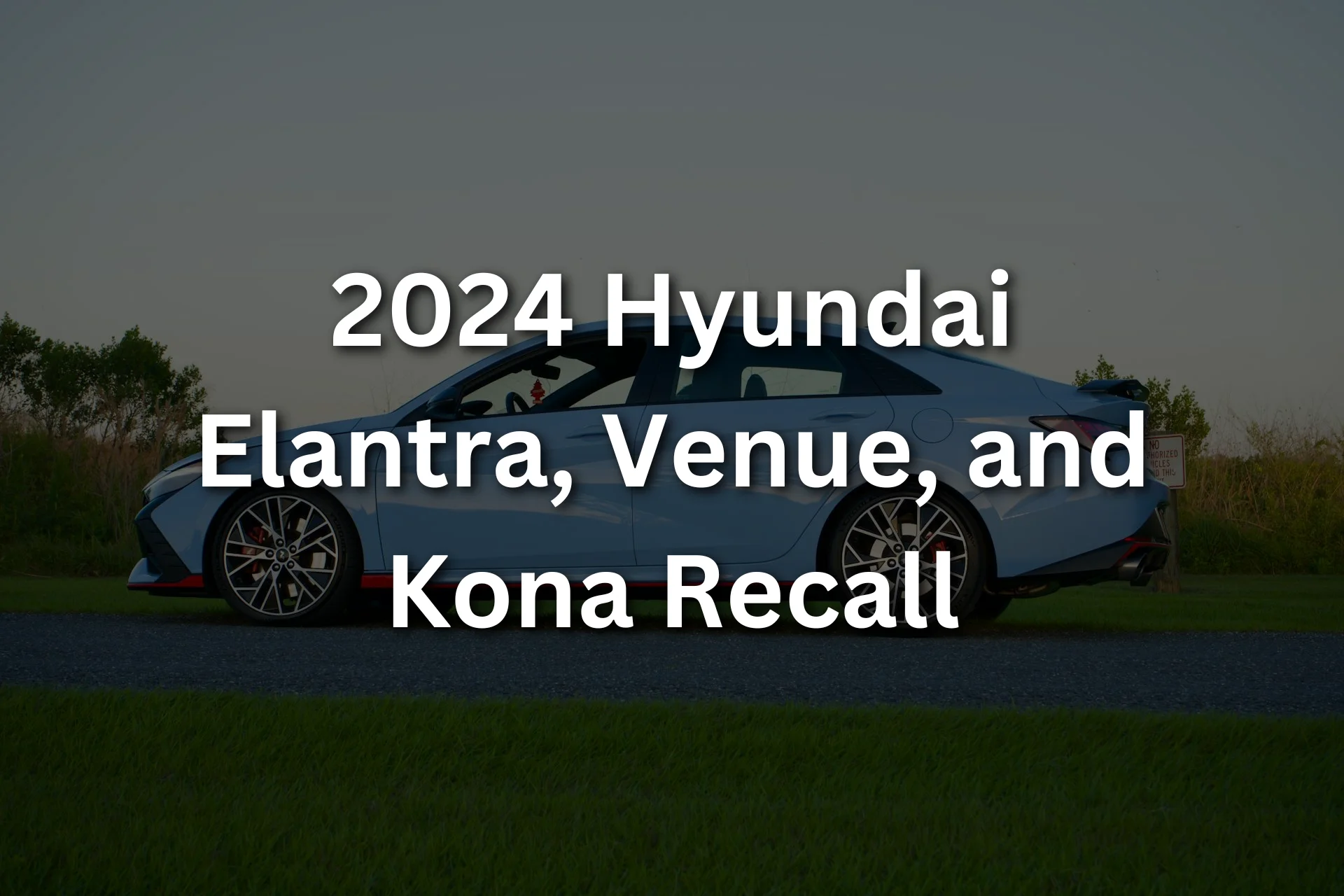Hyundai Motor America has recently announced a safety recall for certain 2024 Hyundai Elantra, 2024 Hyundai Venue, and 2024 Hyundai Kona vehicles to address an issue with the exhaust gas recirculation (EGR) valve that could potentially lead to an engine stall or fire. The recall includes inspection and replacement of the affected EGR valve assemblies in over 13,500 vehicles.

What is Causing the Fire Risk?
Hyundai has discovered that the EGR valve assemblies in the recalled vehicles may contain a sensor contaminated with solder flux from the supplier’s manufacturing process. Over time, this flux contamination can carbonize and increase the risk of an electrical short between the sensor terminals.
An electrical short in the EGR valve could lead to a malfunction of the valve itself or the crankshaft position sensor on the same power circuit. This malfunction can illuminate the check engine light and result in a sudden loss of engine power while driving. In worst cases, it raises the risk of an underhood fire from excessive heat in the electrical components.
What Warning Signs Should I Look Out For?
Some potential signs that your Hyundai may be experiencing issues related to this EGR valve defect include:
- Check engine or malfunction indicator light illuminated
- Sudden loss of engine power or complete engine stall while driving
- Smoke or burning smell coming from the engine area
Which Hyundai Models Are Affected?
The following 2024 Hyundai models are included in this fire risk recall:
- 2024 Hyundai Elantra (7,349 units)
- 2024 Hyundai Venue (2,364 units)
- 2024 Hyundai Kona (3,798 units)
Hyundai plans to begin notifying owners of the recalled vehicles via first-class mail by June 28, 2024. The recall instructions will advise owners to bring their vehicle to a Hyundai dealer for free replacement of the defective EGR valve assembly.
Should I Keep Driving My Hyundai?
While this EGR valve issue can potentially cause a sudden engine stall, Hyundai has not issued any guidance about discontinuing driving unrepaired vehicles at this time. However, owners should be alert for any warning signs like engine stalling or smoke, and have the recall repair completed promptly once notified.
Hyundai dealers will inspect and replace the faulty EGR valve assemblies free of charge. The automaker will also reimburse owners for any expenses incurred in obtaining an interim repair for this condition, as outlined in Hyundai’s general reimbursement plan filed in February 2024.
Other Recent Hyundai & Kia Fire Risk Recalls
This is not the first time Hyundai and its sister company Kia have issued recalls related to engine component defects that could increase vehicle fire risks:
- In April 2022, over 281,000 Hyundai Tucson vehicles were recalled for a computer control issue that could cause the engines to stall and increase fire risks.
- In May 2022, Hyundai recalled 151,000 Sonata and Genesis vehicles due to faulty anti-lock brake system modules that could short-circuit and catch fire.
- In September 2023, Kia recalled over 39,000 Seltos, Soul, and Sportage models for issues with electric oil pumps overheating and posing a fire hazard.
Owners of any affected Hyundai or Kia vehicles should have the specified recall repairs completed promptly at their dealership. Park vehicles outside and away from flammable materials if recommended until repairs are made.
What If My Hyundai Keeps Having Problems?
If you brought in your Hyundai for the same defect issue multiple times and it keeps having problems, it may be considered a lemon under the California lemon law.
Lemon law attorneys can review your vehicle’s repair history and situation to determine if you have a case for the manufacturer to buy back or replace the defective vehicle. Many firms offer free consultations to go over your options.
At Consumer Action Law Group, our team has extensive experience assisting clients with lemon law cases against Hyundai and getting them compensation or vehicle replacements. Reach out to us today for a free, no-obligation case review if your Hyundai keeps having problems that the manufacturer cannot seem to properly fix.









